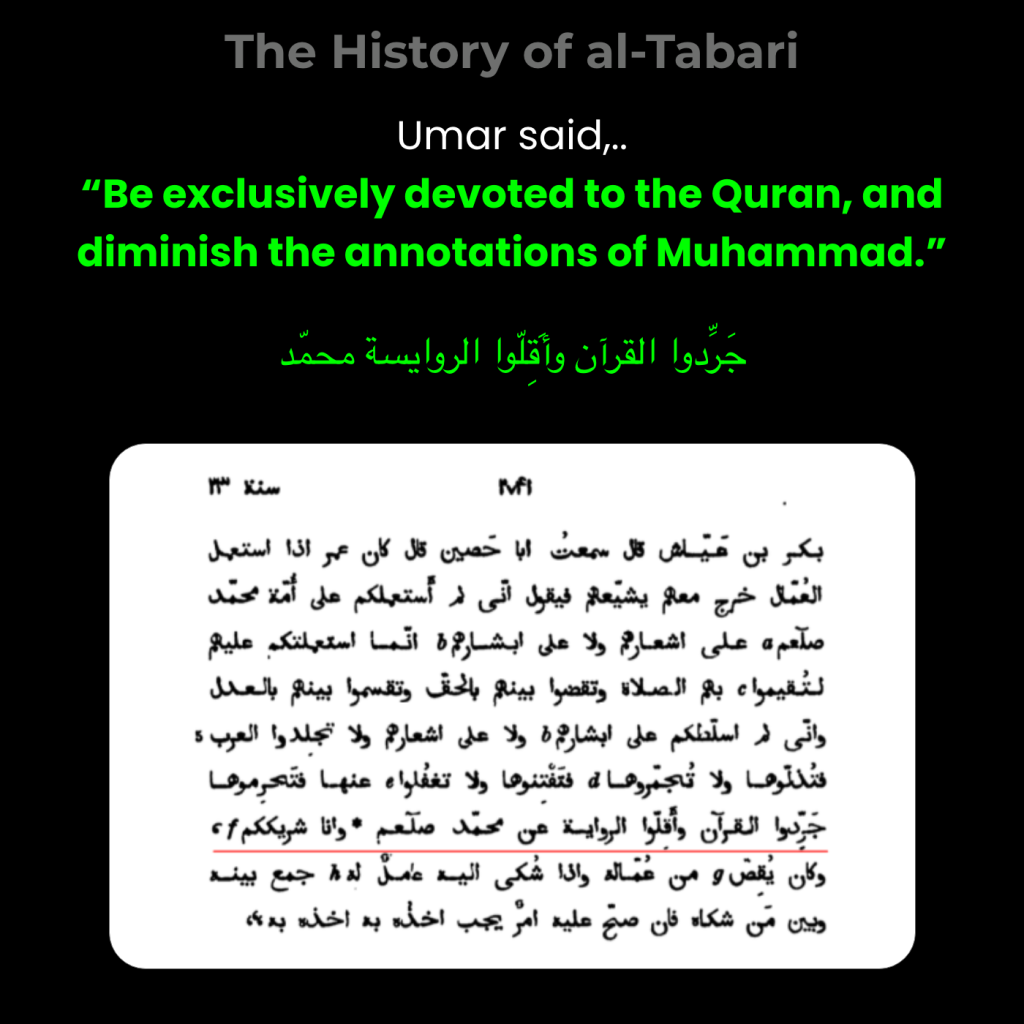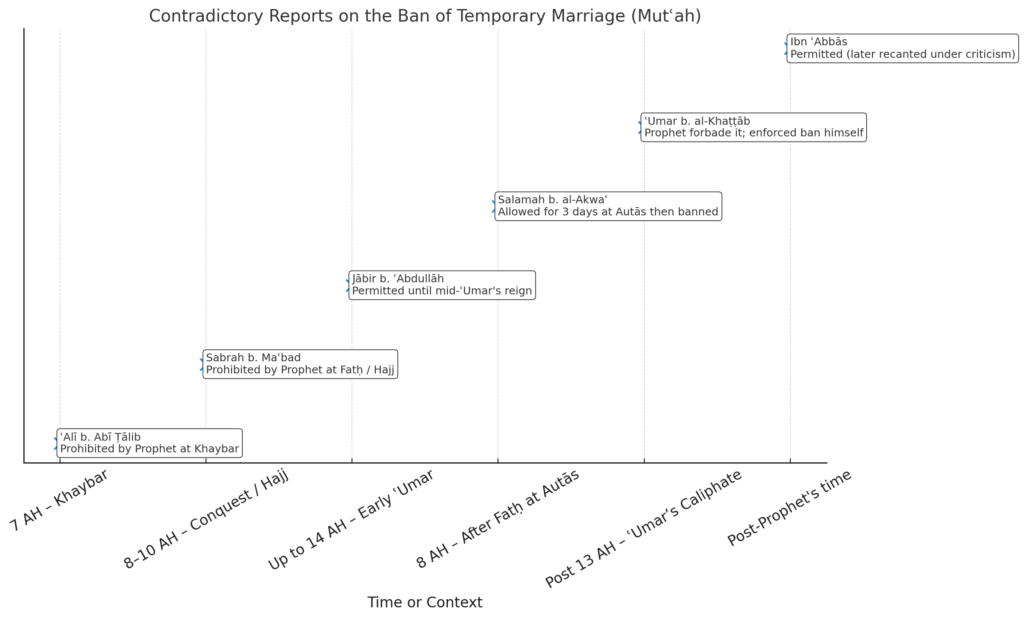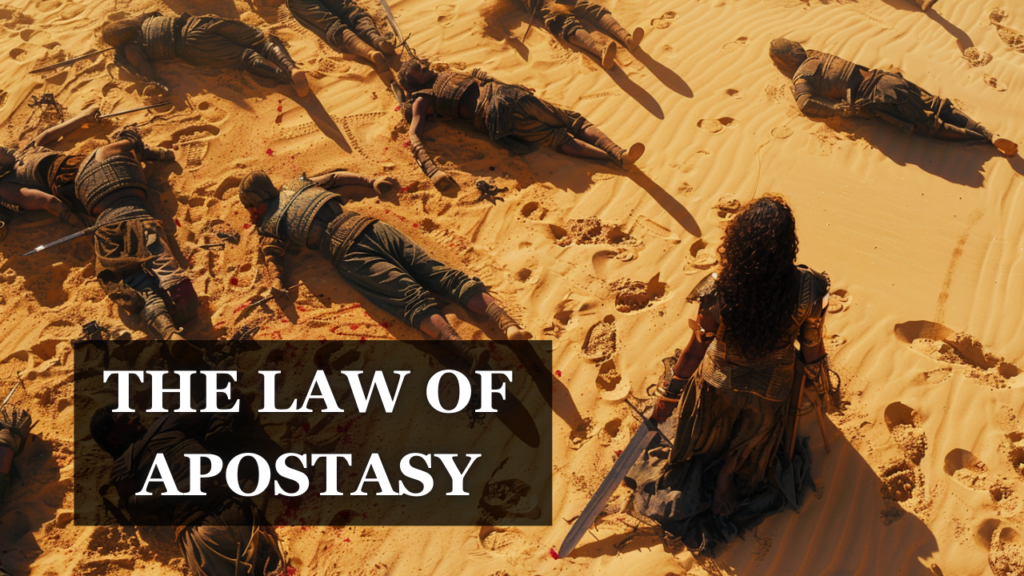The narrative of early Islamic consensus is one of the most persistent myths in traditional hadith scholarship. We’re told that the Sahaba (companions of the Prophet) formed a unified front, accepting and transmitting hadiths with consistency. This supposed consensus is then used to validate later hadith collections as reflecting authentic prophetic teachings. But historical evidence tells a dramatically different story. Far from unanimous agreement, the companions engaged in heated disputes over specific hadiths, questioned each other’s reliability, and often rejected one another’s reports entirely. Some even refused to rely on hadith transmission altogether when making legal rulings.
There were fundamental conflicts that reveal how unstable and contested hadith transmission was from the very beginning. If the primary generation of Muslims, who supposedly lived through the events in question, disagreed this much, then claims of later consensus become nothing more than retroactive mythology.
Aisha Rejects Abu Hurairah’s Hadith – Opts For Quranic Teaching
2910 – Narrated to us by Shaykh Abu Bakr Ahmad ibn Ishaq, who said: Muhammad ibn Ghalib narrated to us, who said: Al-Hasan ibn ‘Umar ibn Shaqiq narrated to us, who said: Salamah ibn al-Fadl narrated to us, from Muhammad ibn Ishaq, from al-Zuhri, from ‘Urwah ibn al-Zubayr, who said:
News reached ʿĀ’isha (may Allah be pleased with her) that Abu Hurayrah was saying that the Messenger of Allah ﷺ said:
“To use a whip in the path of Allah is more beloved to me than freeing the child of adultery,”
and that the Messenger of Allah ﷺ said:
“The child of adultery is the worst of the three,”
and that:
“The deceased is punished due to the crying of the living.”
So ʿĀ’isha responded:
“May Allah have mercy on Abu Hurayrah—he misheard and thus misunderstood.
As for the statement: ‘To use a whip in the path of Allah is more beloved to me than freeing the child of adultery’ — that’s not how it was. When the verse was revealed: (‘But he has not attempted the steep path… And what will make you know what the steep path is?’) [Qur’an 90:11–12], they said, ‘O Messenger of Allah, we have nothing to free except that one of us may have a black slave-girl who serves him and works for him. If we commanded them to commit zina (fornication) and they bore children, then we could free them.’
The Messenger of Allah ﷺ said: ‘To use a whip in the path of Allah is more beloved to me than that I command zina and then free the child.’
And as for the statement: ‘The child of zina is the worst of the three’ — the hadith was not in that form. Rather, there was a man among the hypocrites who used to harm the Messenger of Allah ﷺ. So the Prophet said: ‘Who will deal with so-and-so for me?’ They said: ‘O Messenger of Allah, along with his other faults, he is the child of zina.’ So the Messenger of Allah ﷺ said: ‘He is the worst of the three.’
And Allah, the Almighty and Majestic, says: (‘No bearer of burdens shall bear the burden of another’) [Qur’an 6:164].
And as for the statement: ‘The deceased is punished due to the crying of the living’ — the hadith was not like that. Rather, the Messenger of Allah ﷺ passed by the house of a Jewish man who had died, and his family was crying over him. He said: ‘They are weeping over him, and he is being punished.’
And Allah, the Almighty, says: (‘Allah does not burden a soul beyond its capacity’) [Qur’an 2:286].”
Conclusion by the hadith compiler:
This is a sahih (authentic) hadith according to the conditions of Muslim, although neither al-Bukhari nor Muslim included it.
Source:
المستدرك على الصحيحين
الحاكم – أبو عبد الله محمد بن عبد الله الحاكم النيسابوري
Volume 2, page 584
In this hadith, Aisha appeals directly to the Quranic principle of justice. When confronted with narrations claiming that “the deceased is punished for the crying of the living” or that “the child of adultery is worse than his parents,” she flatly rejected them as false attributions to the Prophet. Instead, she referred the questioner to the Quranic verse: “No bearer of burdens shall bear the burden of another” (Qur’an 6:164; see also 17:15). For Aisha, any report that violated the Quran’s ethical clarity and moral universals could not possibly be authentic, no matter who narrated it. This wasn’t a rare exception, but a consistent hermeneutic: the Quran, not hadith, was the ultimate criterion for truth.
The Aisha-Abu Hurairah Conflicts: When the Prophet’s Wife Called Out A Flagrant Fabricator
Perhaps no conflict illustrates early hadith disputes better than the ongoing tension between Aisha (the Prophet’s wife) and Abu Hurairah, one of the most prolific hadith transmitters in Islamic history. Aisha doubted Abu Hurairah’s integrity and many times called him a liar, and many other companions cast doubts about his credibility and rejected his contradictory ahadith. This wasn’t occasional disagreement; it was systematic rejection of his narrations. Aisha’s rejection was based on the contradiction of these narrations with the clear universals of the Quran.
Hadith 25557:
Rawḥ narrated to us, Saʿīd narrated to us, from Qatādah, from Abū Ḥassān al-Aʿraj:Two men entered upon Aisha, and said, “Abu Hurairah narrates that the Prophet ﷺ used to say: ‘Bad omens are in the woman, the mount, and the house.’”
Aisha became so upset that part of her rose to the sky and part remained on the earth (a metaphor for her extreme anger), and she said:
“By the One who revealed the Qur’an to Abu al-Qasim, this is not what he used to say! Rather, the Prophet ﷺ said: ‘The people of Jahiliyyah (pre-Islamic ignorance) used to say that bad omens are in the woman, the house, and the mount.’”
Then Aisha recited:
“No calamity befalls on the earth or in yourselves except that it is in a Book before We bring it into being…” (Qur’an 57:22).
To support her position, Aisha cited Qur’an 57:22: “No calamity befalls on the earth or in yourselves except that it is inscribed in a Book before We bring it into being.” This verse reflects a theology of divine decree, not superstition or fatalism. For Aisha, the idea of omens was incompatible with the Quran’s message that all events—good or bad—unfold according to God’s will and knowledge. Her response again shows a principled rejection of narrations that undermine the Quran’s theological foundations.
Did Muhammad SEE God?
4574 / 349 — Yahya narrated to us, Waki‘ narrated to us, from Isma‘il ibn Abi Khalid, from ‘Amir, from Masruq, who said:
I said to ‘Aisha (may Allah be pleased with her):
“O my mother, did Muhammad (ﷺ) see his Lord?”
She replied:
“My hair stood on end because of what you said! Where are you from these three things? Whoever tells you any of them has lied:
- Whoever tells you that Muhammad saw his Lord has lied.
Then she recited:
‘Vision perceives Him not, but He perceives [all] vision, and He is the Subtle, the Aware’ (Qur’an 6:103), and ‘It is not for any human being that Allah should speak to him except by revelation or from behind a veil’ (Qur’an 42:51).
- Whoever tells you that he knows what will happen tomorrow has lied.
Then she recited:
‘No soul knows what it will earn tomorrow’ (Qur’an 31:34).
- Whoever tells you that he concealed anything (of the revelation) has lied.
Then she recited:
‘O Messenger, convey everything that has been revealed to you from your Lord’ (Qur’an 5:67).
However, he (the Prophet ﷺ) saw Jibril (Gabriel), peace be upon him, in his true form twice.
عمدة القاري شرح صحيح البخاري
بدر الدين العيني – أبو محمد محمود بن أحمد بن موسى
Once again, Aisha rejected an established hadith based on firm Quranic principles, demonstrating her unwavering commitment to scripture as the ultimate criterion of truth. When asked whether the Prophet had seen his Lord, she responded with shock and theological precision. “My hair stood on end at what you said!” she exclaimed, before emphatically declaring: “Whoever says that Muhammad saw his Lord has lied.” She supported her stance not through speculation or personal opinion, but by invoking Quranic authority: ‘No human vision can encompass Him, whereas He encompasses all vision’ (Qur’an 6:103). She further cited, ‘It is not for any human being that God should speak to him except through inspiration, or from behind a veil’ (Qur’an 42:51). In other words, direct visual encounter with the Divine is not only absent from the Quran—it is theologically precluded by it.
The Fight Between The Companions Continues
Even within Sunni sources, Aisha is frequently shown to have contradicted other companions and challenged the accuracy of their hadith transmissions. Far from being a passive transmitter, she often corrected, amended, or outright rejected reports that she deemed inconsistent with the Prophet’s true teachings held within the Quran. Her critical stance was so well known that later scholars compiled entire works documenting her disputes. One of the most notable is Badruddin al-Zarkashi’s ‘ʿAyn al-Iṣābah fī Istidrāk ʿĀʾishah ʿalā al-Ṣaḥābah’ (“The Accurate Account on Aisha’s Amendments to the Companions’ Narrations”), a book devoted solely to cases where Aisha disputed the narrations of other companions.
Caliph Umar ibn al-Khattab: No Hadith! – Everyone else: …some hadith?
The second Caliph Umar ibn al-Khattab took extraordinary measures to suppress hadith transmission entirely. Umar forbade the companions to quote the sayings of the Prophet in speech or in writing. This wasn’t a minor policy preference—it was a comprehensive ban on the very practice that supposedly preserved prophetic teachings.

The Abu Hurairah Incident
According to multiple early sources, Umar went so far as to imprison Abu Hurairah for narrating too many hadiths after the Prophet’s death, telling him: “You have been conveying too many hadiths from the Messenger of Allah, and I am afraid you may be attributing things to him he didn’t say.“
This is remarkable: the second Caliph, a companion who lived with the Prophet for years, was so concerned about hadith fabrication that he literally imprisoned the man who would become Islam’s most cited hadith narrator.
“لتتركن الحديث عن رسول الله أو لألحقنك بأرض دوس أو بأرض القردة
Umar to Abu Hurairah: “You shall leave alone quoting the Messenger of Allāh, or I shall send you back to the land Dous or to the land of apes.”
Sources:
- [Abu Zur’a al-Dimashqi]
- [Tarikh Abi Zur’a al-Dimashqi, p. 270]
- [page 73 of “Hadith Muhammad’s Legacy in the Medieval and Modern World]
- [QuranTalk – Abu Hurairah]
‘A’ishah was the most abrasive among those (companions) who rejected him [Abu Hurairah] and this ill-wind continued until the end of their lives. And so did ’Umar, who was abrasive against whoever transmitted numerous ahadith or reported information related to judicial judgment without any witness. He used to order (the narrators) to reduce the number of narrations so that the masses will not be confused or corrupted by falsehood.
Sources:
In Tadhkirat al-huffaz, al-Dhahabi reported from Shu’bah, from Sa’id ibn Ibrahim from his father, that Umar detained Ibn Mas’ud, Abu al-Darda’ and Abu Mas’ud al-Ansari, saying to them: You have narrated hadith abundantly from the Messenger of Allah. It is reported that he had detained them in Medina, but they were set free by Uthman.
Source
- Dhahabi Tadhkira 1, 7, For ‘Umar’s policy’ see Khatib Sunnah p.99-111
Practice of Mutah Marriage
Contradictions on When It Was Prohibited
| Time of Prohibition | Companion/Narrator | Sources |
|---|---|---|
| Day of Khaybar | ʿAlī b. Abī Ṭālib | Muslim 1407a, Bukhārī 4216, Ibn Mājah 1961, Ibn Ḥibbān 4143, Bayhaqī 19450 |
| Year of the Conquest (ʿĀm al-Fatḥ) | Sabrah b. Maʿbad | Muslim 1406j, Ahmad 15344, Bayhaqī 14159, Dārimī 2242 |
| Farewell Pilgrimage | Sabrah (also) | Ṭabarānī 6516, Aḥmad 15338 |
| After 3 days at Autās | Salamah b. al-Akwaʿ | Muslim 1405f, Ahmad 16552, Bayhaqī 14161 |
→ Contradiction:
- Sabrah b. Maʿbad is reported to have said it was banned at Fatḥ and Ḥajjat al-Wadāʿ (Farewell Hajj).
- ʿAlī and others said Khaybar, which was years earlier.
- Salamah says Autās (after Fatḥ) – a third event.
Contradictions on Who Prohibited It
| Prohibited By | Companion/Narrator | Sources |
|---|---|---|
| Prophet | Most narrations, especially from Sabrah, Salamah, ʿAlī | Multiple: Muslim 1406h, Ahmad, Ṭabarānī, etc. |
| ʿUmar | Ibn ʿUmar, Mālik, Bayhaqī, Ibn Mājah 1963 | Ibn Mājah 1963: ʿUmar said, “The Prophet allowed it 3 times, then forbade it, but if I catch anyone doing it I will stone him.” |
| Ali criticizes Ibn ʿAbbās for allowing it | Bayhaqī 14147 | “You are lost! The Prophet forbade it…” |
→ Contradiction:
- If it was already prohibited by the Prophet, why was ʿUmar still legislating punishment?
- Some accounts suggest ʿUmar initiated the ban, others clearly attribute it to the Prophet.
Contradictions on Whether It Was Allowed Again
| View | Narrator | Source |
|---|---|---|
| It was allowed again (after initial ban) | Jābir b. ʿAbdullāh | Muslim 1405c: Mutʿah continued during Prophet’s time, Abū Bakr’s and early ʿUmar’s rule |
| Only allowed 3 days | Salamah b. al-Akwaʿ | Muslim 1405f, Ahmad |
| Never allowed again | ʿAlī b. Abī Ṭālib | Muslim 1407a, Bukhārī 4216 |
| Severe need led to a brief allowance | Sahl b. Saʿd | Ṭabarānī 5695 |
→ Contradiction:
- Jābir says mutʿah lasted through three administrations.
- Other reports say it was banned during the Prophet’s life (Khaybar, Fatḥ, or Hajj).
- ʿUmar claimed the Prophet banned it, but treats it as if unclear (asks for 4 witnesses if someone claims it was later permitted again).
Key Narrators with Conflicting Testimonies
| Companion | View on Mutʿah | Time of Ban | Conflict With |
|---|---|---|---|
| ʿAlī | Prophet forbade at Khaybar | Khaybar | Sabrah, Jābir, ʿUmar |
| Sabrah b. Maʿbad | Prophet forbade it | Fatḥ & Hajj | ʿAlī, Jābir |
| Jābir b. ʿAbdullāh | Permitted in Prophet’s, Abū Bakr’s, and ʿUmar’s time | N/A | ʿAlī, Sabrah |
| Salamah b. al-Akwaʿ | Permitted for 3 days at Autās, then banned | Autās | ʿAlī, Sabrah |
| ʿUmar | Prophet forbade it, but enforced ban himself | His caliphate | Jābir, Ibn ʿAbbās |
| Ibn ʿAbbās | Considered it permissible | Later recanted | ʿAlī, ʿUmar, Ibn al-Zubayr |

The Companions Argued – what does this actually mean?
If this level of disagreement existed among the supposed primary sources, then later claims of “authentic” hadith collections become highly problematic. The idea that 2nd and 3rd-century scholars could somehow recover “consensus” positions that didn’t exist in the 1st century is historically implausible. What we call “traditional consensus” is actually the result of:
- Later political and theological developments
- Selective preservation of certain narratives over others
- Retroactive harmonization of contradictory sources
- Institutional pressure to create unified legal frameworks
The real historical evidence shows that disagreement, not consensus, was the norm from the very beginning. This is crucial evidence about how Islamic traditions actually developed. Rather than emerging from a unified prophetic source, early Islamic teachings were contested, debated, and shaped by the conflicting interpretations of different authorities. A close look at the hadith literature reveals sharp disagreements among the companions on major legal and theological matters. The supposed consensus was not an organic reality, but a construct imposed by later generations to create the illusion of unity and suppress diverse understandings.
“This is not fabricated Hadith; this (Quran) confirms all previous scriptures, provides the details of everything, and is a beacon and mercy for those who believe.”
— Quran 12:111
“Shall I seek other than GOD as a source of law, when He has revealed to you this book fully detailed?”
— Quran 6:114
“We did not leave anything out of this book.”
— Quran 6:38
“This Quran could not possibly be authored by other than GOD. It confirms previous scriptures, and provides a fully detailed account of everything.”
— Quran 10:37
The companions did not agree according to the Sunnis’ own corpus. The hadith corpus is filled with contradictions and confusions. The doctrine of consensus was an after-the-fact invention, used to give divine weight to fallible human decisions.
God’s Quran is complete, preserved, mathematically protected, and sufficient for all guidance.
Everything else is conjecture and should never be elevated above God’s revealed truth.
“We have given them a scripture that is fully detailed, with knowledge, guidance, and mercy for the people who believe.”
— Quran 7:52


Keep up the good work brother.
My contribution: https://www.quranvshadith.com
(e.g. contains more anti-hadith quotes from first four caliphs)